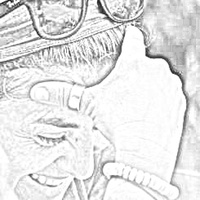
Elena Loizidou
Gender Theory, Political Theory and in particular classical anarchism.
less
Related Authors
Galen Strawson
The University of Texas at Austin
James Elkins
School of the Art Institute of Chicago
Shaun Gallagher
University of Memphis
Armando Marques-Guedes
UNL - New University of Lisbon
Rachel E Smith
University of Aberdeen
Mauro Grondona
University of Genova
Peter D. Thomas
Brunel University
TOMMASO GRECO
University of Pisa
Cosmin Sebastian Cercel
Ghent University
חנוך בן-פזי Hanoch Ben-Pazi
Bar-Ilan University
InterestsView All (14)










Uploads
Papers by Elena Loizidou